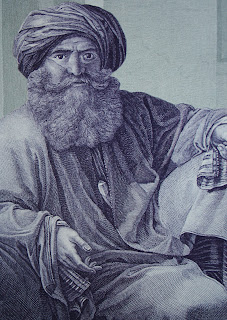I don't remember how Egypt first caught my attention but I remember it becoming somewhat of an obsession with me when I was in High School.
"I'm going to be an Egyptologist," I told the grandmother who had invested in my college education.
"No you're not," she replied.
I went to journalism school instead.
I still poured over books with paintings of brightly colored birds and crumbling images of Pharaohs carved in stone which had failed to stand the test of time.
Idealistic images of the country always manifested in my mind's eye: golden skies, palms heavy with fruit and the ubiquitous felucca listing to one side on the always tranquil Nile.
I bought books on hieroglyphics and the source of the Nile and marveled over Howard Carter's success at finding the unplundered tomb of Tutankhamen out in the Valley of the Kings. I wanted to unearth something as glorious.
I'm afraid that all the beautiful hand-drawn images I studied from bygone days gave me a desire to know a land long altered.
Also, some of the images now seem to serve as a forewarning for the Revolution that would unfold in my time. There is only so much subjugation a People can take.
As you can see, the image at left bears a few of my favorite Egyptian things; a hazy golden sky, feluccas, and the pyramids. Men take a moment out of their working lives to relax and talk.


Below is an image of Murad Bey, a member of the Mamlukes who were from Circassia, Georgia and Mingrelia. They were a slave class trained for warfare but they eventually used their training to seize control of the country.
The man at right is Mehemet Ali, the son of a Turk who wiped out the Mamlukes in 1811. He was not to be trusted or trifled with.
Inevitably, the Europeans arrived. In Egypt this was known as "The Age of the Wanker." It was marked by a lot of pasty people leaning on and/or stealing important historical artifacts and speaking to the locals like they were deaf donkeys. Oh, dear.
As history has shown, there is nothing like a little colonialism to shake things up with the locals. If you want to leave a wound on someone else's civilization that will sting for centuries to come, this is definitely the way to go.
It is truly a remarkable thing to wander into the lands of another People and conquer them for "their own good." It takes a certain amount of mental flexibility to ignore the fact that said people had thrived for ages without your pats on the head and management of their daily affairs, yet, somehow the French and British pressed on.

Below is a drawing from the book "Having a Wonderful Time" by Tom Pohrt. In it, a young girl named Eva and her orange tabby named Sam decide to visit a land that looks a lot like Egypt although it is never named.
Eva meets a camel named Cassis who takes them to an Oasis for lunch.
The waiters are crocodiles and one even wears a fez. This image reminds me of a poem from Lewis Carroll's "Alice in Wonderland:"
How doth the little crocodile
Improve his shining tail,
And pour the waters of the Nile
On every golden scale!
How cheerfully he seems to grin,
How neatly spreads his claws,
And welcomes little fishes in,
With gently smiling jaws.
The book is a lovely bit of escapism and I enjoy giving it a read every now and again.
As you can see, I'm enamored with an Egypt now gone and one that never was.






As crazy as it may sound, you are remembering the Egypt that I remember. An Egypt that was and is no more. An Egypt of lush green and flowing waters. A land of life and a beacon of hope. This land did not pass the test of time and it makes you wonder what place possibly can...
ReplyDelete